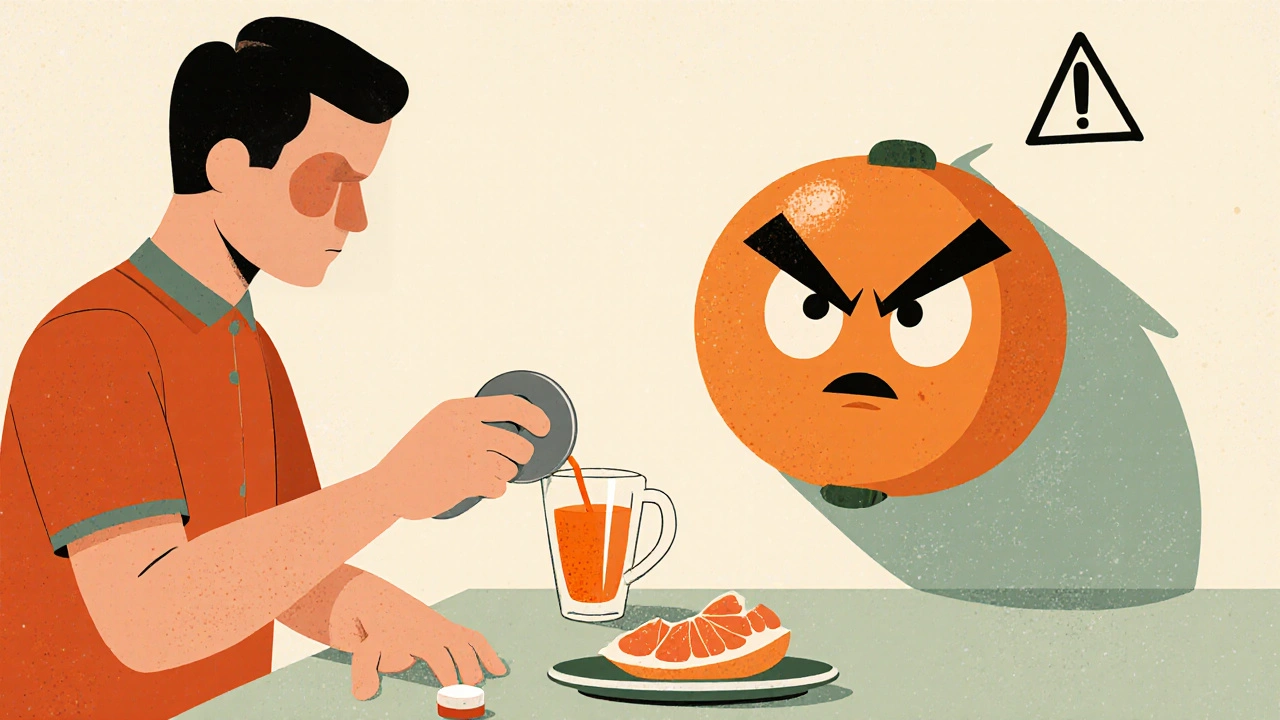Drug-Food Interactions: What You Need to Know Before You Eat
When you take a pill, it doesn’t just work in a vacuum. Drug-food interactions, happen when what you eat changes how your medicine is absorbed, broken down, or works in your body. Also known as food-drug interactions, these aren’t just theoretical—they can make your drug useless, too strong, or even dangerous. Think of your digestive system as a busy highway. Medications are cars trying to get through. Food? It’s traffic, roadblocks, or detours. Some foods slow down the ride. Others speed it up. And some? They crash the whole system.
Take grapefruit, a common fruit that interferes with enzymes in your liver and gut that break down dozens of medications. Also known as citrus fruit interaction, it can cause drugs like statins, blood pressure meds, and even some anti-anxiety pills to build up to toxic levels. One grapefruit can do this for up to 72 hours. That’s not a myth—it’s why pharmacists ask you what you eat. Then there’s dairy, which binds to antibiotics like tetracycline and ciprofloxacin, stopping them from being absorbed at all. Also known as calcium interference, swallowing your pill with milk might as well be throwing it away. Even something as simple as spinach or kale can mess with blood thinners like warfarin because of vitamin K. It doesn’t mean you can’t eat greens. It means you need to eat them the same way every day—so your doctor can adjust your dose right.
These aren’t rare edge cases. They’re everyday risks. The FDA has warned about grapefruit and over 85 drugs. The CDC says over half of adults take at least one prescription, and most don’t know how food affects them. You might think, "I’ve been eating this with my pill for years," but your body changes. Your liver slows down. Your gut absorbs differently. What was fine last year might kill you this year. That’s why drug-food interactions are one of the most under-discussed dangers in medicine. It’s not about being perfect. It’s about being aware.
Below, you’ll find real, practical guides on how common drugs behave with food, supplements, and even your morning coffee. From antibiotics that wipe out good bacteria and trigger yeast infections, to fentanyl patches that become deadly when heated, to how generic meds work the same as brand names—but only if you take them right. These aren’t theory pieces. They’re what doctors and pharmacists tell each other when they’re worried someone’s about to get hurt. Read them. Save them. Share them. Your next meal could be the difference between healing and hospitalization.

Drug Interactions: How Food, Supplements, and Medications Can Clash and What to Do About It
Food, supplements, and medications can clash in dangerous ways-grapefruit can make statins toxic, St. John’s wort can render birth control useless, and vitamin K can undo warfarin. Learn how to spot and prevent these hidden interactions.
